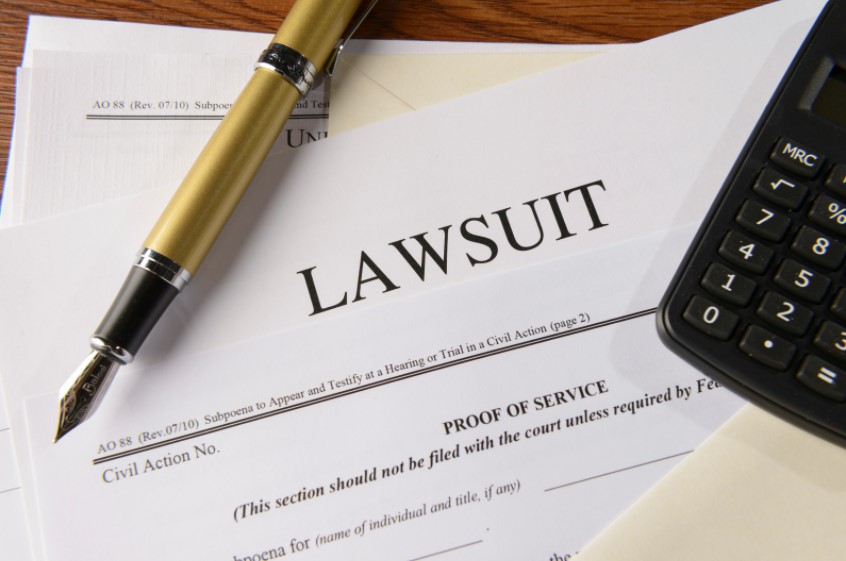The lawsuit against the University of Metaphysical Sciences has become a major topic, grabbing the attention of students, staff, and people interested in metaphysical studies. This case could have a big impact on the university’s everyday activities, its accreditation, and how it’s seen in the academic world.The ongoing legal battle has raised concerns about the university’s future and its financial stability.
Update on the University of Metaphysical Sciences Lawsuit: A Detailed Overview!

The University of Metaphysical Sciences (UMS) lawsuit has captured the attention of many in academic and legal circles. This article provides an in-depth look at the lawsuit, detailing its progress, current status, and potential implications for the institution.
It also examines the perspectives of those involved and explores the broader impact on the metaphysical education landscape. By breaking down the complexities, this overview aims to clarify the key aspects of this high-profile case.
Who Are the Parties Involved?
The lawsuit involves the University of Metaphysical Sciences, a prominent institution offering metaphysical education, and the plaintiffs, whose grievances range from administrative disputes to broader legal claims.
The plaintiffs allege misconduct related to [specific allegations], while the University defends its practices and credibility. Legal representation for both sides includes experienced attorneys specializing in institutional law. Understanding the motivations and backgrounds of both parties is essential to grasp the case’s complexity.
Recent Updates and Developments:
Recently, the case has seen significant developments. For example, [describe recent updates, such as new evidence or motions filed by either party]. One notable update includes the court’s decision to allow certain key pieces of evidence, which could be pivotal in determining the outcome.
Additionally, public interest in the case has grown, with increased media coverage highlighting its importance. These updates have brought the case closer to resolution while intensifying scrutiny.
Current Status of the University of Metaphysical Sciences Lawsuit:
Latest Court Decisions:
The latest court decisions include [summarize recent rulings or judgments]. These rulings have had a [positive/negative/neutral] impact on the University’s position in the lawsuit. For example, the court recently ruled on the admissibility of specific evidence, which was a contentious issue between the parties.
This decision has set the stage for subsequent legal arguments and has been widely analyzed by legal experts. Its implications could shape the strategies of both sides moving forward.
Possible Outcomes:
Possible outcomes range from [describe potential results, such as a settlement, dismissal, or ruling in favor of either party]. A settlement could provide a quicker resolution but might leave certain issues unresolved.
A ruling in favor of the plaintiffs could result in significant changes to the University’s operations and policies. Conversely, a favorable outcome for the University might reinforce its current practices and enhance its standing. Each scenario has distinct ramifications for all involved.
Also Read: 314159u – Can You Crack the Code!
Effect of the University of Metaphysical Sciences Lawsuit on Its Accreditation and Operations:
Accreditation Status:
The lawsuit has raised questions about the University’s accreditation status. Currently, [state whether accreditation remains intact or has been affected]. Accreditation is vital for the institution’s credibility and operations.
A loss of accreditation could impact student enrollment and financial aid eligibility, while maintaining it would help stabilize the University during this challenging time. Efforts to uphold accreditation standards remain a top priority for the institution.
Impact on Students and Faculty:
Students and faculty have experienced [describe effects, such as uncertainty, program interruptions, or morale issues]. For example, some students have reported concerns about the value of their degrees amid the ongoing legal battle.
Faculty members have also faced challenges, including increased scrutiny and disruptions to their teaching schedules. These impacts underscore the importance of resolving the lawsuit promptly to restore confidence and normalcy within the academic community.
Reputation in the Academic World:
The lawsuit has affected the University’s reputation, with [describe how the academic community views the institution]. Critics argue that the case has tarnished its credibility, while supporters emphasize its resilience and commitment to education.
Academic peers are closely watching the outcome, as it could influence perceptions of metaphysical studies as a legitimate field. Rebuilding trust and reputation will require strategic efforts, regardless of the lawsuit’s resolution.
The Legal Process: How Does a Lawsuit Like This Unfold?

Filing the Lawsuit:
A lawsuit begins with filing a formal complaint, which outlines the plaintiff’s grievances. In this case, the plaintiffs alleged [briefly describe allegations]. The initial filing sets the stage for subsequent legal proceedings, detailing the specific claims and relief sought.
This phase also involves notifying the defendant and allowing them to prepare their response. Effective preparation during this stage often determines the strength of the case as it progresses.
The Court Procedures:
Court procedures involve [describe steps, such as hearings, discovery, and evidence presentation]. Discovery allows both sides to request and review evidence, ensuring transparency and fairness.
Hearings provide opportunities to address procedural and substantive issues before the court. Evidence presentation is the cornerstone of any trial, where both parties aim to substantiate their claims or defenses. These procedures ensure a thorough examination of the case.
Possible Appeals and Legal Loopholes:
If the court’s decision is unfavorable to either party, appeals are likely. Legal loopholes may also play a role, potentially prolonging the resolution process. Appeals provide a mechanism for reviewing potential errors in the trial, ensuring justice is served.
However, exploiting loopholes can complicate proceedings, leading to delays and additional costs. Understanding these aspects is key to anticipating the case’s trajectory.
What Legal Experts Say About the University of Metaphysical Sciences Lawsuit Update!
Opinions from Legal Analysts:
Legal analysts have weighed in, noting that [describe insights, such as strengths or weaknesses in the case]. For instance, some experts believe the plaintiffs have a strong case due to [specific reasons], while others argue that the University’s defense is well-founded.
These differing opinions highlight the complexity of the case and the challenges in predicting its outcome. Analysts emphasize the need for careful legal strategy by both parties.
Potential Legal Precedents:
The lawsuit could set significant legal precedents in [mention relevant areas, such as academic law or institutional governance]. For example, a ruling in this case might influence how similar disputes are handled in the future.
Precedents can shape policies and practices across the academic sector, affecting how institutions manage legal risks. This case’s outcome could become a reference point for addressing comparable issues in the future.
Final Thoughts:
The University of Metaphysical Sciences lawsuit is a complex legal battle with far-reaching implications. Understanding its timeline, current status, and potential outcomes is essential for all stakeholders.
As the case unfolds, its impact on accreditation, operations, and reputation will become clearer. For now, staying informed and analyzing expert opinions remain crucial. Ultimately, the resolution of this case could shape the future of metaphysical education and institutional governance.




